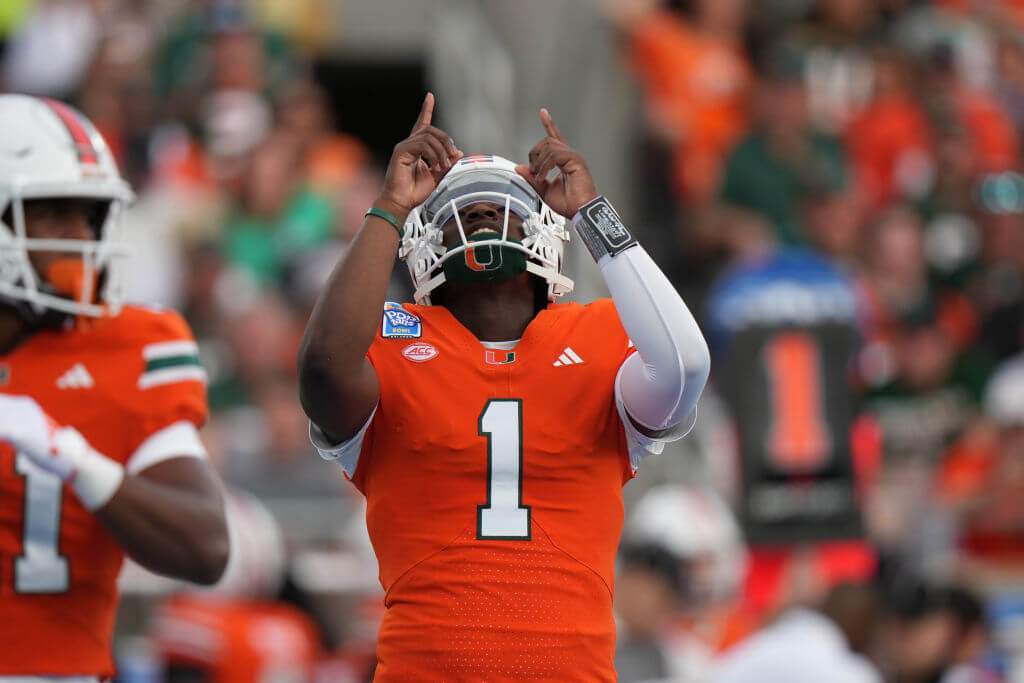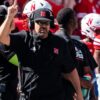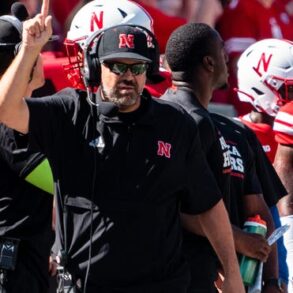
Until Saturday Newsletter 🏈 | This is The Athletic’s college football newsletter. Sign up here to receive Until Saturday directly in your inbox.
Heads up: Next week does not include a leap day. The next leap year is 2028.
Changes: Big Ten-SEC intergalactic dominion summit
In New Orleans yesterday, college football’s two occasionally benevolent commissioner-conferences met to advance their joint takeover of all known and unknown dimensions. The Athletic was on the scene to cover five takeaways.
Let’s lead with the change that seems imminent, and then go in decreasing order of decision-maker urgency, based on my own guesswork:
1. Both leagues support changing College Football Playoff seeding to get rid of those awkward first-round byes for conference champs. Last season, if seeding had been based on nothing but committee rankings in the new 12-team format, No. 1 Oregon would’ve had its bye, then drawn the winner of No. 8 Indiana vs. No. 9 Boise State, rather than having to immediately face fuming-mad Ohio State in a rematch.
Advertisement
This could begin changing as soon as next week, when the Power 2 meet with the other FBS commissioners. I think it’d be in those leagues’ best interests to preserve byes for conference champs, but the Power 2 have the ability to overrule anybody else’s CFP interests anyway.
Also part of CFP decision-making, at least theoretically, is Notre Dame AD Pete Bevacqua. Under the Power 2’s favored system, the independent Irish would be eligible for byes (and last year, would’ve been an NIU away from getting one).
2. CFP play-in games alongside (or instead of) conference championships? As has been discussed, both leagues are looking into this, in case the CFP expands (lol “in case”) and if these leagues decide to grant themselves multiple automatic bids each (lmao “if”). Those bids could then be on the line in games like a Big Ten No. 3 vs. No. 6 showdown the day before Selection Sunday.
Also, let’s get silly:
“The SEC has discussed a more radical idea: four play-in games, matching No. 1 and No. 8, No. 4 and No. 5, No. 2 and No. 7 and No. 3 and No. 6.”
South Carolina knocking Texas out of the playoff before it even begins! Well, I assume this would mean four SEC teams taking auto bids, and then Texas making it as an at-large anyway.
3. Sing along if you know the words: The SEC is moving closer to a nine-game schedule. Automatic bids could diminish concerns about losses overly damaging contenders, which will mainly be a major storyline whenever Alabama has damaging losses.
4. No annual Big Ten-SEC Challenge just yet. Heartbreakingly, natural rivals UCLA and Mississippi State have yet to meet in football.
5. And finally, something that relates to what has ironically been college sports’ most urgent matter for like 170 years now: Without collective bargaining, there’s no way to actually wrangle transfers. Power 2 punting for now. More on this issue below.
That’s the list for now. In response, I think the MAC and CUSA should meet with each other, then start issuing orders about who they think can and can’t make the Playoff.

Peter Joneleit / Icon Sportswire via Getty Images
Quick Snaps
🫵 Cam Ward went ahead and called out any teams that don’t draft him (and said he wouldn’t change how he handled his Pop-Tarts Bowl appearance).
💪 Obviously, Ward is among the NFL Draft‘s most pivotal players, but here’s what jumped out at me: “It’s not impossible that as many as four tight ends land in Round 1.” Usually it’s one or two, if even that many.
Advertisement
📝 An explainer about the upcoming House v. NCAA settlement: Title IX wouldn’t affect the money schools could begin paying players, but it would still apply to new scholarship limits.
👀 Illinois, typically a top-50 recruiter, ranks No. 6 so far for 2026. Grace Raynor takes a closer look.
🐝 Joining the list of former NFL stars now coaching at HBCUs: Clinton Portis, on DeSean Jackson’s Delaware State Hornets staff.
South Wins: CFB All-Star Game poll results
With all this unwholesome talk of the Big Ten and SEC being best friends now (eww), it’s important to remember there is supposed to be deep football animosity between these conferences and regions, in whatever sense the Big Ten can be referred to as representing a region.
So, inspired by a chat on the “Until Saturday” podcast, I asked which team you’d pick to usually win an annual college football All-Star game: the South or the World. I also left it up to you to determine for yourself exactly which states count as Southern.

I’m a little surprised to see how many more of you picked the South, since teams from elsewhere have won the last two national titles.
Can’t say I disagree, though. But now I’m curious about 2020 Alabama vs. 2020 World. That was when the Tide had five of the country’s 11 unanimous All-American offensive or defensive players.
Hey, here’s Stewart Mandel with this newsletter’s final word for this week:
Mandel’s Mailbag
Your old colleague Max Olson reported that Texas Tech spent $10 million this offseason on 17 transfers. Is there any fear or anger from other schools that the “fair value” market price is being blown out of the water and constantly being raised? — Ryan K., Lexington, Ky.
Whether it’s naivete, wishful thinking or both, a lot of college administrators have been counting on the House settlement, which could be approved in April, to rein in the NIL market. For one thing, there’s the revenue-sharing component, in which schools will be able to directly spend $20.5 million on their rosters (in all sports) without having to depend on fan/booster donations. And then there’s the new “NIL clearinghouse,” as established by the settlement. Here’s how South Carolina AD Jeremiah Donati explained it to fans in a recent letter:
“As the settlement is currently written, NIL will look a lot different post July 1 when these new rules are adopted. For example, all deals between third parties and student-athletes over $600 will be subject to an independent fair-market-value analysis on a case-by-case basis. Deals that are above FMR — after being reviewed by a clearing house — will not be permissible for student-athletes to accept.”
Advertisement
You read that right. A clearinghouse (being operated by Deloitte) is going to tell athletes they can’t accept a $1 million offer from Collective X because its “analysis” determined they’re only worth $200,000. Lawsuits, lawsuits, lawsuits.
College administrators continue to cling to the notion that the market for college athletes should operate differently than almost any other in this country, including in their own business. No clearinghouse approves AD or coaching salaries or the salaries of any athletic department or university employee.
For the 8,000th time, the only way they’re ever going to be allowed to cap athletes’ earnings, and thus slow down the ever-escalating price tags, is via collective bargaining. But that would require acknowledging the athletes as employees. And they don’t want that.
Read Stewart’s full mailbag here.
📫 Love Until Saturday? Check out The Athletic’s other newsletters.
(Top photo: Sean M. Haffey / Getty Images)
This post was originally published on this site be sure to check out more of their content.








